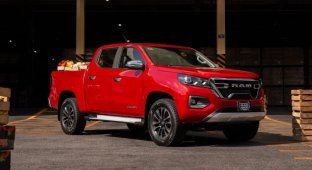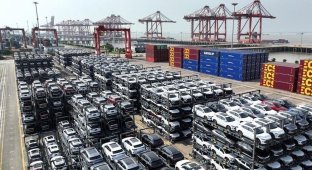GM and Ford are asking Trump not to give their main competitor a significant advantage (3 photos)

Automakers in tariff battle
Rivals General Motors and Ford have urged the Trump administration to reject Stellantis’ request to eliminate or reduce tariffs of up to 25% that could apply to Ram medium-duty pickup trucks made in Mexico. The rivals argue that such a concession could give Stellantis an unfair advantage and disrupt the level playing field.
Key Situation Highlights
Government Investigations and Decisions
In April, the U.S. Department of Commerce launched an investigation into heavy-duty truck imports, focusing on medium- and heavy-duty models to support domestic manufacturing. Trump recently announced a 25% tariff on heavy-duty trucks, but has yet to make a decision on medium-duty truck imports, despite previously promising to do so by October 1.
Lobbying and Company Positions
Stellantis has been actively lobbying for a possible tariff on medium-duty trucks. However, GM and Ford are also pressuring the government not to give Stellantis an advantage over trucks assembled in the U.S. from imported components that are already subject to tariffs.
According to Crain’s Detroit Business, Stellantis will build more than 200,000 Ram 2500 and 3500 medium-duty trucks at its Saltillo, Mexico, plant in 2024. That plant alone generated about $13.8 billion in revenue last year. The new tariffs could cost the company up to $2 billion in annual adjusted operating income. 
Ford’s Position and Future Decisions
Ford recently supported the administration’s heavy-duty truck tariffs, which is not surprising since the company makes all of its heavy-duty trucks in the United States.
Ford appreciates the Trump administration’s recent actions on heavy-duty trucks, which support our shared goal of growing the American auto industry and manufacturing in the United States. American automakers deserve a level playing field.
It is not yet known when the Trump administration will make a decision on tariffs on medium-duty trucks. 
This battle over tariff terms reflects the broader challenges of globalization in the auto industry, as manufacturers struggle to balance costs, competitiveness and political pressures. Mexican plants like Saltillo have become key links in supply chains, but their role could change due to trade restrictions, affecting not only companies’ profits but also market prices for consumers.




























